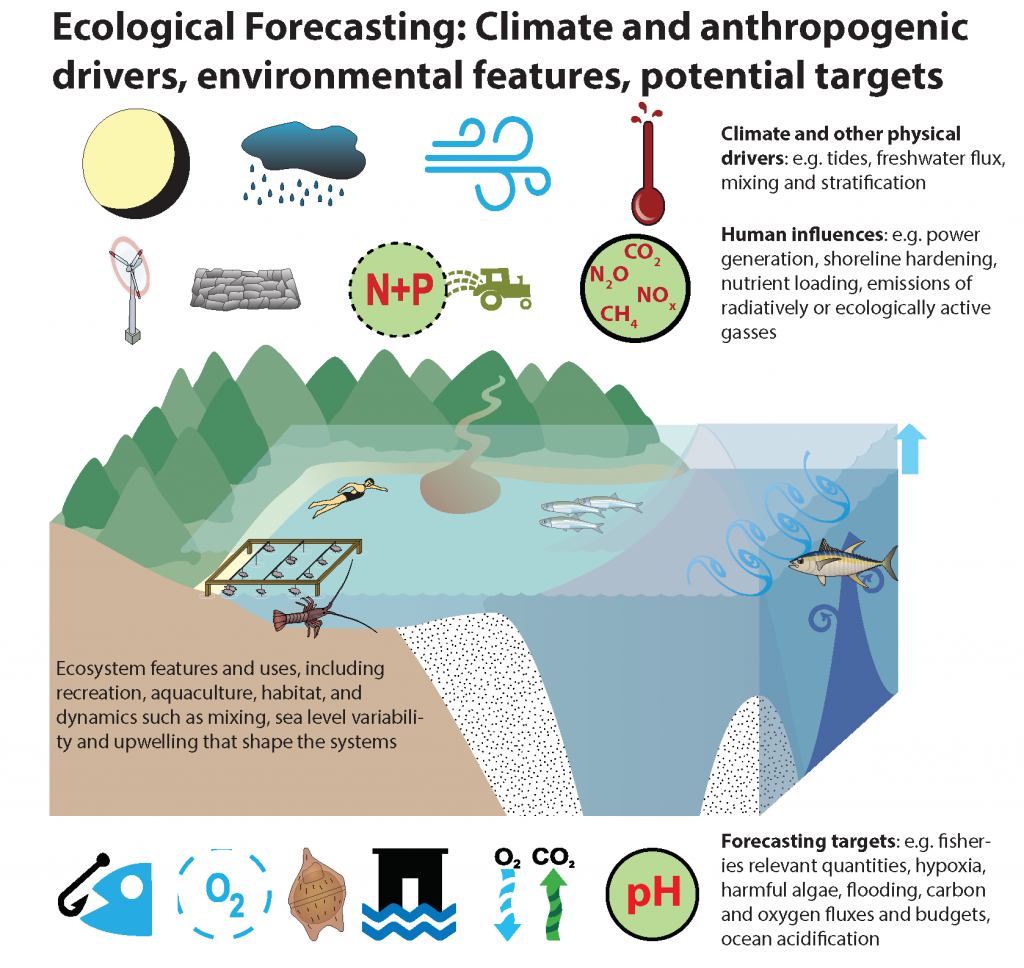
Marine ecosystems have great value, supporting fisheries, aquaculture, tourism, recreation and shipping, as well as interacting dynamically with the climate system. Each of these human and natural systems have different forecasting needs. The functioning of ecosystems is strongly influenced by climate variability, which influences processes such as sea level, temperature, salinity, dissolved oxygen, nutrients and pH. Modeling and prediction of higher order ecosystem processes to date have often relied on empirical statistical methods which are computationally efficient and have high skill. However, as conditions increasingly deviate from climatological norms, these methods may require re-evaluation. Prediction in a changing world requires developing mechanistic understanding to underpin observed statistical relationships, and consistent datasets for model development and validation. This session will begin with a brief summary overview of current efforts by Charles Stock (NOAA Geophysical Fluid Dynamics Laboratory), followed by breakout discussions aimed at:
- Brainstorming common and uniquely place-based ecological forecasting opportunities, challenges and needs across regions
- Developing networks of interdisciplinary early career and established researchers interested in ecological forecasting
- Building frameworks for discussion at a joint OCB and US CLIVAR sponsored ecological forecasting workshop planned for Spring 2022
We anticipate providing discussion breakout summaries on a workshop website to further stimulate online discussion and networking.
Chairs: Victoria Coles (Univ. Maryland Center for Environmental Science), Antonietta Capotondi (NOAA Physical Science Laboratory), Marjy Friedrichs (Virginia Inst. of Marine Science), Raleigh Hood (Univ. Maryland Center for Environmental Science), Susanne Menden-Deuer (Univ. Rhode Island), Charles Stock (NOAA Geophysical Fluid Dynamics Laboratory)
Date: June 11, 2021



